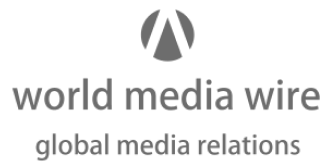When business costs need to be cut, PR budgets often go first. The reason is actually quite simple: it can sometimes be hard to measure the efficiency of publicity and its direct influence on company profits.
Hard, but not impossible.
Often said to be one of the rare promotors of public relations among the C-suite, Bill Gates said:
‘Most people overestimate what they can do in one year and underestimate what they can do in ten years.’
Public relation departments often enable long-term gains for the company by boosting the success of other departments.
? Read Digital PR Explained: Best Strategies and Tools
But PR pros often get too focused thinking about their primary metrics like media placements, social engagement and others to look beyond and see whether there is data from other departments they can use to boost the value of their results in the eyes of their CEO or client.
PR can contribute to the success of advertising campaigns
PR, marketing and advertising often get ushered under a single umbrella, because the success of these three professions is highly based on mutual cooperation.
For example, it is very hard to open a new market or present a product through advertising alone. PR can help advertising efficiency by boosting brand recognition by placing news about the company in media outlets.
People are more likely to react to an advertisement if it comes from a familiar company.
In digital advertising, PR efforts prior or during the launch of a campaign do not increase only awareness, but also clickthrough rates and conversion. Work with your marketing department to see if there is any correlation between PR campaigns and sales results which can be attributed to the efforts of the PR department.
It improves employer branding efforts
The success of a company depends on the quality of its employees. While the human resources department plays the most prominent role in attracting and retaining good employees, public relations can have a major impact as well – by building an image of a company as a successful, fun place to work.
PR and HR should work together on crafting and distributing messages that are sent to potential employees.
They can write up stories about the work ethics, work atmosphere, company’s vision and mission and present success stories from existing employees. HR can contribute to outlets devoted to best management practices, and employees can share their stories via blog, video, or by being active on social media.
There are many ways to build up a reputation of an attractive employer, and they can be measured through number of applicants and open applications. During the interview, HR can ask people where they learned about the company and what they think about it.
PR can boost domain authority
The main goal of SEO (search engine optimisation) is to make your website rank higher in search engine results.
If you’re making drills, the end goal would be to rank first whenever somebody types “best drills” in Google, Bing, Yandex or any other search engine. In today’s digital world, PR can help SEO experts – a lot.
For example, if an article about your company appears on a website, you should ask for a link back to your site. An increased number of links from high authority domains will also lead to an increase in your search engine rank. Ask your company’s SEO expert to make a brief summary of how your efforts helped them.
PR department is no longer a lone player – it must work with others to be able to see the full impact of its campaigns. Next time you’re making your PR report, don’t just count media impressions, or retweets – take into consideration how you can measure SEO success, job applications, and the correlation between your advertising and your PR efforts.



